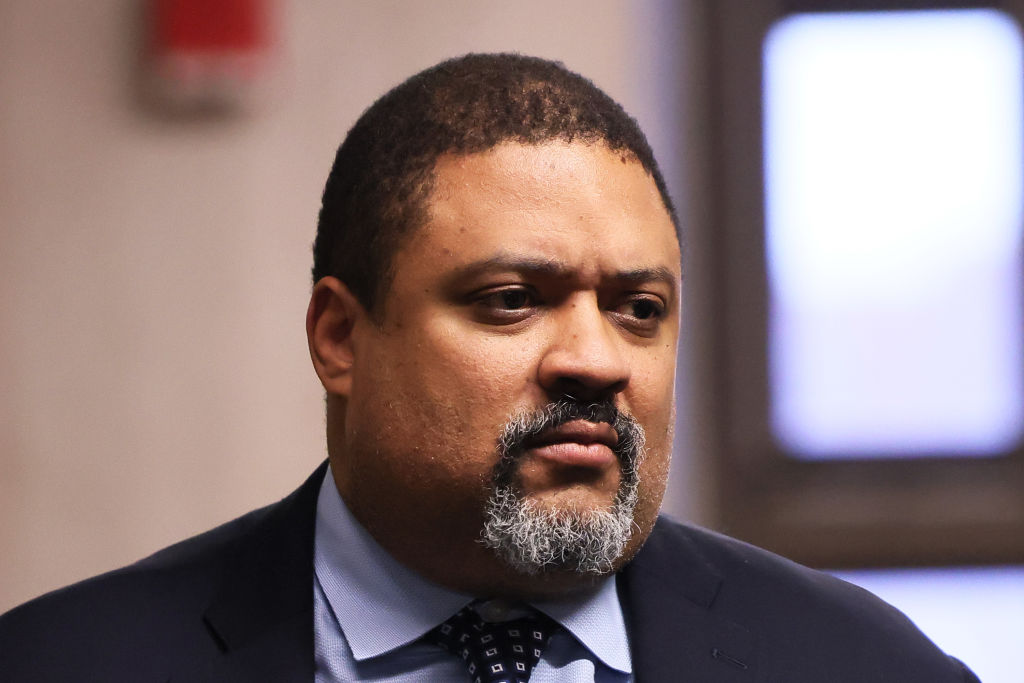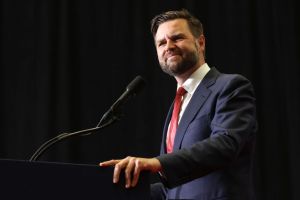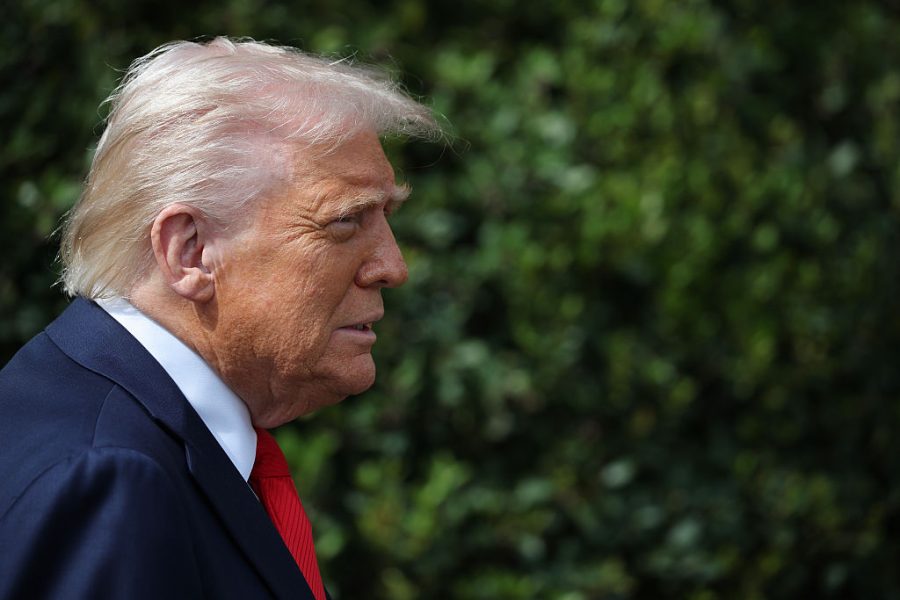For being what Politico describes as a “politics-averse prosecutor,” the Democratic Manhattan district attorney Alvin Bragg, reportedly set to indict Donald Trump any moment now, has certainly spent a fair bit of time targeting the former president and pondering his indictment.
Bragg is purportedly on the verge of ordering Trump’s arrest over so-called “hush money” that Trump allegedly had his former attorney Michael Cohen (who served time in prison) pay to porn star Stormy Daniels during his 2016 presidential campaign to keep her quiet about an affair they are said to have had. If he does so, Bragg will become the first prosecutor to bring criminal charges against a former president. Barring new evidence, the consensus is that Trump will be charged with falsifying business records, which is a misdemeanor — unless, as the Washington Times explains, prosecutors “upgrade it to a felony if they allege the defendant falsified the records to conceal a second crime.”
The Wall Street Journal implies that Bragg’s course of action does amount to what the Trump team has classified as a “witch hunt,” declaring that the indictment is based “on the weakest of charges.” There is a reason, the Journal notes, why over the past seven years, “even federal prosecutors refused to bring [this case] to court.”
Bragg himself initially appeared to have given up on the case. Two prosecutors quit over Bragg’s cooling on the case, and one of them, Mark Pomerantz, went on to write People vs. Trump: An Inside Account, “a fascinating inside account of the attempt to prosecute former president Donald Trump.”
Since then, Bragg seems to have gotten his indictment groove back. After his ex-prosecutor aired his frustrations publicly, Bragg’s office announced it was “exploring evidence not previously explored” against Trump and referred to the “next chapter” of the case — sparking “hope of a Trump indictment” among Salon.com readers.
Evidence against Trump has been on Bragg’s mind since at least 2020. In an interview with CBS News at the time, Bragg brought up Michael Cohen and “the finance part” of Trump’s legal cases. “Presumably, the evidence is there,” Bragg said, adding that he believed the case was “charge ready.”
Bragg has spoken of his office’s goal to prioritize white-collar crime. He also has a history of spearheading legal action against Trump. According to CBS, “At the New York Attorney General’s Office, he oversaw multiple aggressive legal battles with Trump entities, including a lawsuit against the Trump Foundation.”
Bragg went on to earn the support of George Soros, who donated $1 million to his campaign. On the DA campaign trail, Bragg was fond of telling voters that he had sued the Trump administration “more than a hundred times.”
He was also fond of telling voters about how as a teenager in Harlem, he was stopped “numerous times at gunpoint by police.” Almost immediately after being installed as DA, Bragg sent a memo to his staff instructing them to follow policies premised on the principle of “alternatives to incarceration.” The New York Times reported at the time that prosecutors were told to “ask judges for jail or prison time only for the most serious offenses — including murder, sexual assault and economic crimes involving vast sums of money — unless the law requires them to do otherwise.”
Bragg’s memo incited swift outrage in the crime-ridden city, so Bragg took “full accountability for that confusion caused” and assured constituents his office would take crime seriously.
For now, Bragg is taking Trump’s indictment seriously, and many Republicans are calling foul. Kentucky Senator Rand Paul tweeted, “A Trump indictment would be a disgusting abuse of power. The DA should be put in jail.”
Florida governor Ron DeSantis weighed in, too, diplomatically, sort of coming to Trump’s defense without dirtying his hands. “I’ve seen rumors swirl, I have not seen any facts yet, and so I don’t know what’s going to happen,” DeSantis said. “But I do know this: the Manhattan district attorney is a Soros-funded prosecutor, and so he, like other Soros-funded prosecutors, they weaponize their office to impose a political agenda on society at the expense of the rule of law and public safety.”

























